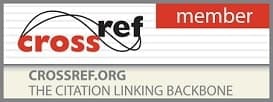- Printed Journal
- Indexed Journal
- Refereed Journal
- Peer Reviewed Journal
P-ISSN: 2394-1685 | E-ISSN: 2394-1693 | CODEN: IJPEJB
Impact Factor (RJIF): 5.38
2015, Vol. 2, Issue 2, Part F
Effect of hand-eye coordination on motor coordinative ability of tribal adolescents
Author(s): Arun Kumar Nayak
Abstract:
Adolescence (lat adolescere = (to) grow) is a transitional stage of Physical and mental human development that occurs between childhood and adulthood. This transition involves biological (i.e. pubertal), social, and psychological changes, though the biological or physiological ones are the easiest to measure objectively. Childhood and adolescence are crucial periods of life, since dramatic physiological, psychological and cognitive changes take place at these ages. The cognitive changes along with perceptual development may affect their motor coordinative abilities as well specially in tribal adolescents, who belongs to altogether different socio cultural environment. Reaching for a pen, grasping a doorknob, driving, roller skating walking-etc. which are examples of few physical actions-all involve well- Eye-hand movements made with well-balanced postures. In fact, whenever we move the three basic functions of movement, balance, and coordination work in concert to produce graceful, purposeful motions of body parts. This is actually quite a feat, because moving is a complex process.
Pages: 328-330 | 1691 Views 339 Downloads
Download Full Article: Click Here

How to cite this article:
Arun Kumar Nayak. Effect of hand-eye coordination on motor coordinative ability of tribal adolescents. Int J Phys Educ Sports Health 2015;2(2):328-330.








 Research Journals
Research Journals